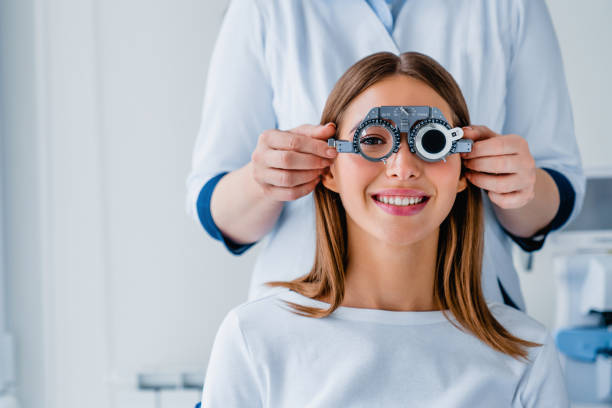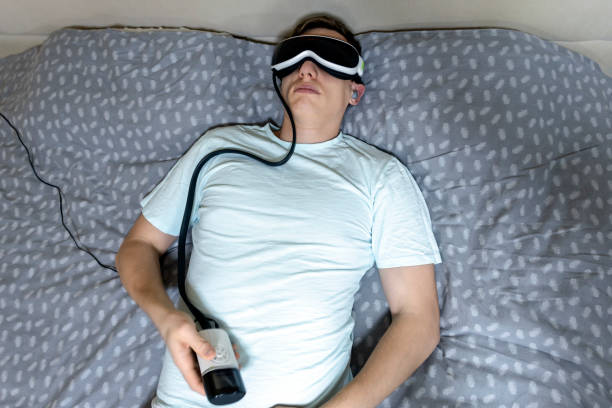Do you have a twitch in your eye? If so, you’re not alone. Many people experience this annoying phenomenon from time to time. While it’s usually nothing to worry about, there can be some causes of eye twitching that require treatment. In this blog post, we will discuss the 10 most common causes of eye twitching.

Eye twitching is a common and often annoying problem. Though it can be alarming, eye twitching is usually not a sign of a serious condition. In most cases, it goes away on its own. However, if your upper eyelid twitching persists or is accompanied by other symptoms, such as vision changes or severe pain, you should see your doctor.
There are many potential causes of eye twitching, including:
One of the most common causes of eye twitching is fatigue. If you are not getting enough sleep, your body will start to show signs of stress, and one of these signs may be eye twitching.
Stress can trigger involuntary muscle contractions which can lead to eyelid twitch.
Caffeine is a stimulant that can increase alertness and energy levels. However, it can also cause jitters and muscle twitching. Too much caffeine may exacerbate existing eyelid twitches or make them more likely to occur.

If your eyes are dry, they may twitch in an attempt to lubricate the eye surface. This condition is known as dry eye syndrome (DES). It’s important to treat DES because, if left untreated, it can lead to more serious problems such as corneal ulcers.
Seasonal allergies can also trigger eye twitches. If you notice that your eyes are watering and you are sneezing more than usual, it is likely that allergies are the cause of your eye twitching.
Another most common culprit is eyestrain. If you spend long hours looking at a computer screen or reading without taking breaks, your eyes can become tired and strained. This can lead to muscle spasms in the eyelid, causing it to twitch.
One more potential cause of eye twitching is smoking. Cigarette smoke contains a number of toxins that can irritate the eyes and cause muscles to spasm. In addition, smoking can lead to dehydration, which can also contribute to eye twitching.

Alcohol abuse can also be a cause of eye twitching. When alcohol is metabolized by the liver, it produces a substance called acetaldehyde. Acetaldehyde is a toxic chemical that can damage nerve cells and cause irritation and inflammation. This can lead to muscle spasms, including those in the eyelid. In addition, alcohol abuse can cause dehydration, which can also contribute to eye twitching.
Nutritional deficiencies are often to blame when it comes to involuntary eyelid spasms, such as eye twitching. The three most common culprits are magnesium, iron, and vitamin B12. Magnesium helps to relax muscles and nerves, so a deficiency can lead to increased muscle tension and spasms.
Similarly, iron is essential for the proper function of neurons and muscle cells, so a deficiency can interfere with communication between the brain and muscles, resulting in twitching.
Finally, vitamin B12 is necessary for the formation of red blood cells, which carry oxygen to the muscles. A lack of oxygen can cause muscle weakness and spasms. If you’re experiencing eye twitch, consider taking a supplement or increasing your intake of foods rich in these nutrients.
Certain medications are one of the most common causes of eyelid twitching. Antidepressants, antihistamines, and decongestants are just a few of the medications that can lead to this condition. In most cases, the twitching is mild and goes away on its own after a few days.
However, in some cases, the twitching can be more severe and persistent. If you are experiencing severe or persistent eye twitching, it is important to talk to your doctor about possible medications that could be causing the problem. In some cases, changing to a different medication can help to resolve the issue.

For many people, eye twitching is a nuisance. It may be intermittent and last for days, weeks, or even months. In some cases, it can be constant.
Diagnosis of eye twitching usually begins with a comprehensive eye examination. This will help rule out other potential causes of your symptoms, such as dry eye, fatigue, or allergies.
If your doctor suspects that your eye twitching is related to a neurological condition, they may refer you to a neurologist for further evaluation.

Many people experience occasional eye twitching, which is usually harmless and disappears on its own. However, in some cases, eye twitching can be a sign of a more serious condition. Therefore, it is important to be aware of the potential causes of eye twitching and to seek medical help if the twitching persists.
If you are experiencing severe or minor eyelid twitch, it could be due to stress or anxiety. Relaxation techniques may be helpful. One of the most common causes of eye twitching is stress or lack of sleep. If you are experiencing temporary eye twitching, try to get more rest and reduce your stress levels.
Eye twitching can also be caused by excessive use of alcohol or caffeine, or by certain medications. If you think that your twitching may be due to one of these factors, try discontinuing the use of the substance or medication and see if the twitching stops.
If your twitching persists or is accompanied by other symptoms, such as vision problems, it could be a sign of an underlying neurological condition. In this case, a neurologist will likely be able to provide a more specific diagnosis and treatment plans such as medication or botox injections.
Treatment for eye twitching will generally focus on managing the underlying cause. For example, if dry eye is the cause, artificial tears or other medications may be recommended. In some cases, botulinum toxin injections can be used to treat chronic eye twitching.
In rare cases, eye twitching can be a symptom of a brain tumor or other serious medical condition. If you are experiencing persistent or severe eye twitching, it is important to see a doctor for a comprehensive evaluation.
While most causes of eye twitching are benign, in rare cases it can be a symptom of a serious condition. If you are concerned about your eye twitching, be sure to consult with a medical professional. With the proper diagnosis and treatment, your eye twitching should resolve itself in no time.
Related Posts: